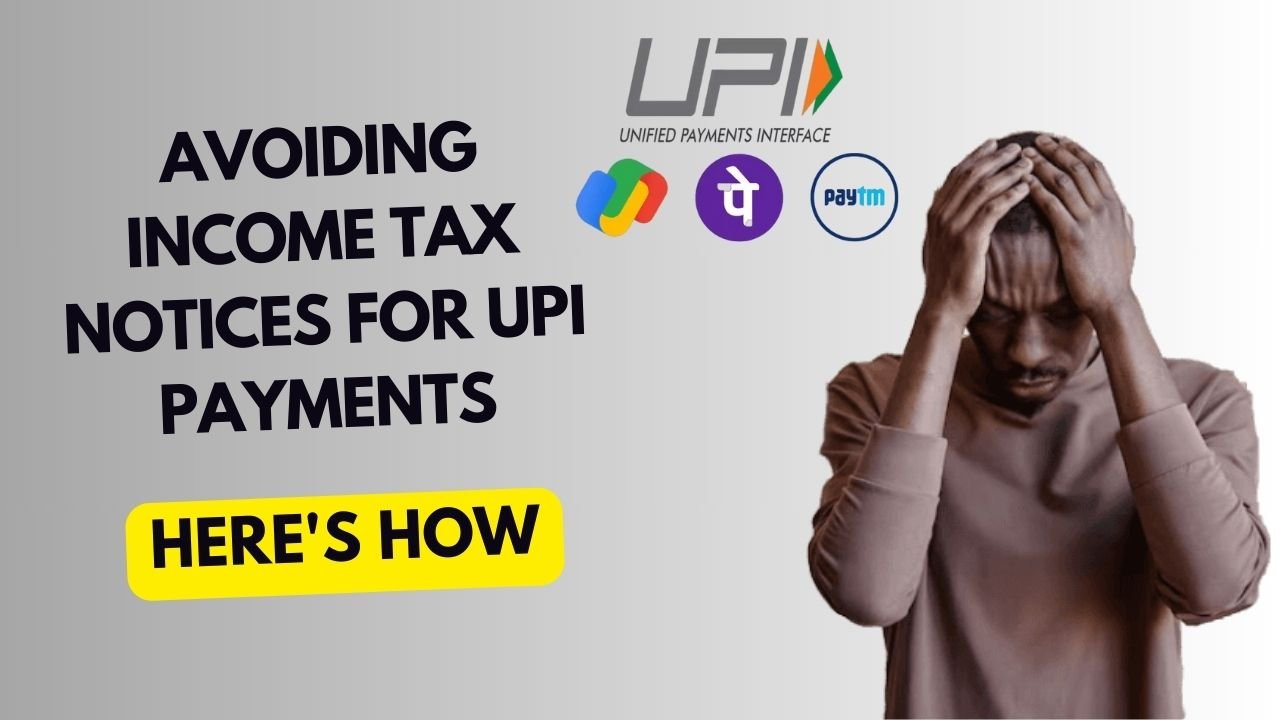Income Tax Notices for UPI Payments: Are you one of those who rely on apps like Google Pay, PhonePe, Amazon Pay, or Paytm for making online UPI payments? Well, hold on tight because an income tax notice might just come knocking at your door! With the surge in online transactions, the Income Tax Department has been closely monitoring bank transactions, but when it comes to UPI, the scrutiny isn’t as clear-cut. This lack of clarity has led many to indulge in excessive transactions, potentially inviting income tax notices. Others get caught up in cashback or promotional offers, unknowingly escalating their transactions. But fret not, here’s how you can steer clear of trouble and keep your finances in check.
Why UPI Payments Can Lead to Income Tax Notices
The absence of a transaction limit on UPI payments often lures individuals into making excessive transactions, which could trigger an income tax notice. Many assume that as long as their transactions fall below a certain threshold, typically 5 lakhs, 10 lakhs, or 20 lakhs annually, they’re safe from scrutiny. However, it’s crucial to understand that the Income Tax Department can issue notices for transactions dating back up to 8 years. So, even if you haven’t received a notice for your transactions from the previous year or earlier, don’t let your guard down.
Keeping Tabs on UPI Transactions
Some individuals maintain multiple bank accounts for UPI payments, spreading their transactions across them, believing it would help them evade taxes. However, the Income Tax Department doesn’t monitor bank accounts but keeps a close eye on PAN card transactions. Since your PAN card is linked to every bank account you hold, using multiple accounts won’t escape their scrutiny.
Understanding Income Tax Thresholds
According to the old income tax regime, individuals earning up to 5 lakhs annually and the new regime up to 7 lakhs annually are exempt from income tax. However, if your income exceeds 5 lakhs but falls short of 7 lakhs, you’re still required to file an Income Tax Return (ITR). It’s essential to grasp both the old and new income tax rules to understand how much tax you owe based on your income.

Tips to Avoid Income Tax Notices for UPI Payments
1. Limit Unnecessary Transactions: Many individuals engage in additional transactions solely for cashback rewards. However, excessive deposits might raise suspicions, potentially inviting income tax notices. So, refrain from unnecessary transactions.
2. Use Current Accounts for Business: If you’re a small business owner conducting transactions via UPI, consider using current accounts for business transactions. This way, your business income will be distinct from your personal income, reducing the risk of tax scrutiny.
3. File ITR Promptly: If your transactions are high but within the ambit of your income, ensure timely filing of Income Tax Returns. This way, you can transparently declare your income and avoid unnecessary tax burdens.
By adopting these practices, you can navigate the UPI landscape without attracting unwanted attention from the Income Tax Department. Remember, prudence in financial dealings is key to a hassle-free tax experience. Stay informed, stay vigilant, and stay tax-compliant!
Read more:
Empowering NRIs: UPI’s Global Reach and Game Changing Benefits
